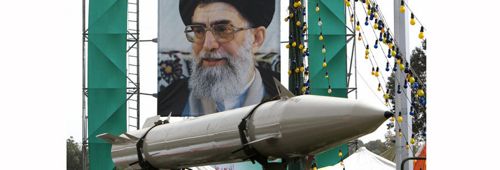
I am presently a guest of David Bradley, Walter Isaacson and Shelby Coffey at the Atlantic Monthly/Aspen Institute/Newseum sponsored mega-wonk meeting titled “First Draft of History.” It’s an excellent conference, but I’m losing it listening to Republican Majority Leader Whip Eric Cantor essentially argue that there is zero value engaging Iran.
Does he want the Republican Party really to be the know nothing/do nothing party? Brent Scowcroft, Chuck Hagel, Dimitri Simes, Richard Armitage, James Baker, Edward Djerejian, Alan Simpson, Rita Hauser, Jim Leach, Susan Eisenhower, Christine Todd Whitman, Lincoln Chafee, and many others have either been (or were) major national Republican voices – and all of them would most likely support an engagement strategy to try and change Iran’s current policy course.
But Cantor wants none of them and wants to continue to animate the generally ignorant pretentions of America’s pugnacious nationalists.
Just to be clear, I am not arguing that all who oppose engagement with Iran are ignorant — but Cantor’s explanations on why not to engage are mostly vapid assertions and don’t deal with the broader strategic deficits the US has today. There are many who disagree with me on Iran engagement who I respect — but I just don’t have much time for the kind of argument offered by Representative Cantor.
All that aside, The Guardian‘s Julian Borger reports that there may be better news than bad after the first encounter between American and Iranian negotiations.
One of the benchmarks that Iran President Mahmoud Ahmadinejad laid out as a meaure of American seriousness was to get a read on whether we would allow the international order to sell Iran uranium processed to a level of 20% for medical applications. Apparently, the US has given the green light to a deal on this.
Borger writes:
. . .there is an “agreement in principle” that Iran will send out a significant chunk of its low enriched uranium (LEU) to Russia for further enriching and then to France, to be processed into fuel for the Tehran Research Reactor (TRR), for making medical isotopes
If all this happens – and there will be a meeting on the details between Iran, France and Russia at IAEA headquarters in Vienna on October 18 – then a lot of the uranium the world is currently worrying about would be temporarily taken out of the equation. Western officials here say that to restock the TRR, Iran would have to send out up to 1200 kg of LEU. That’s about three-quarters of what they’ve got, and it would be out of the country for a year. When it came back it would be in the form of fuel rods, so it could not be turned into weapons grade material in a quick breakout scenario.
The deal was apparently hatched by the Americans and Russians over the past month, and it could be a masterful means of lowering tensions.
It would not infringe what Iran argues is its sovereign right to a fully-fledged nuclear programme, so face would be saved. But it takes off the table, for the time being, the main source of immediate anxiety – the uranium stockpile.
More later. Back to the conference — where we just had an interesting exchange with Niall Ferguson, General David Petraeus, Senator Lindsey Graham, and others.
— Steve Clemons


17 comments on “Good Start with Iran?”